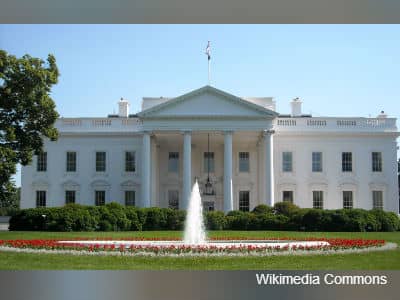Bishop Wilton Gregory, president of the U.S. Conference of Catholic Bishops, opened a gathering of the American hierarchy with a speech that focused little on victims and more on the church's future.
At the bishops' meeting last June, Gregory set the tone with an address about the abuse crisis in which he repeatedly apologized for the church's mishandling of molestation claims. Victim advocates noted the new focus Monday and accused bishops of abandoning their commitment to reform.
Gregory denied there was any change, and the bishops are expected this week to give final approval to a policy that outlines how they are to try and remove guilty priests from all church work.
But Gregory also said the crisis that erupted in January with the case of a pedophile in the Boston Archdiocese has "fractured" relations among prelates, priests and rank-and-file Catholics. He acknowledged priests feel "unfairly judged" by the misdeeds of a few. "We cannot and must never allow the particular positions that we have taken on such a serious issue, or even the mistakes that we have made in understanding and addressing it, to destroy our communion with one another in the Lord," Gregory said.
Critics inside and outside of the church have tried to capitalize on the scandals to undermine Catholic teaching, Gregory said, and he urged bishops to challenge them. Thousands of Catholics angry about how bishops have dealt with errant priests have joined reform movements and, while many support Catholic teaching, some want the church to ordain women and to allow priests to marry. "One cannot fail to hear in the distance _ and sometimes very nearby _ the call of the false prophet," Gregory said. "We bishops need to recognize this call and to name it clearly for what it is."
David Clohessy, national director of the Survivors' Network of Those Abused by Priests, called Gregory's speech, "a real slap in the face to Catholic lay people." "It's saying stop the discussion, stop the dissension. We have good priests and we're moving on," Clohessy said. "Their agenda here is to say 'We're done. We have nice words on paper. We're moving forward.'"
On Tuesday, victim advocates will release a database of more than 800 priests accused of abuse to signal they will continue to push for change. The bishops originally passed a disciplinary plan when they met five months ago in Dallas. The policy before the group now is a revision negotiated with the Vatican that protects priests' rights and underscores that bishops, not lay people, have the authority to oversee clergy.
Whatever plan is adopted this week will stand for at least two years if it wins Vatican approval to become church law in the United States. Victims say the new version is cumbersome and secretive. But on Monday, Oklahoma Gov. Frank Keating, head of the lay National Review Board--which was formed by the bishops to ensure dioceses properly handle abuse claims--said his panel was satisfied with the changes. The board met Monday separately from the bishops.
The plan being considered by the bishops calls for church tribunals to hear the cases of clerics who maintain their innocence in the face of abuse allegations. It also establishes a preliminary investigation when a claim is first made. Bishops would conduct that privately to protect the reputation of the accused.
The original policy gave bishops authority to oust guilty priests more swiftly. At least 325 of the nation's 46,000 priests have either resigned or been suspended over allegations of abuse this year. Most of the claims involve cases from years and even decades ago.
The revisions also reinstate the church's statute of limitations on bringing complaints. The alleged victim must come forward by age 28, but bishops still can ask the Vatican for a waiver in special cases.
Lay review boards formed to monitor abuse cases in dioceses would be advisory only, under the new plan.

